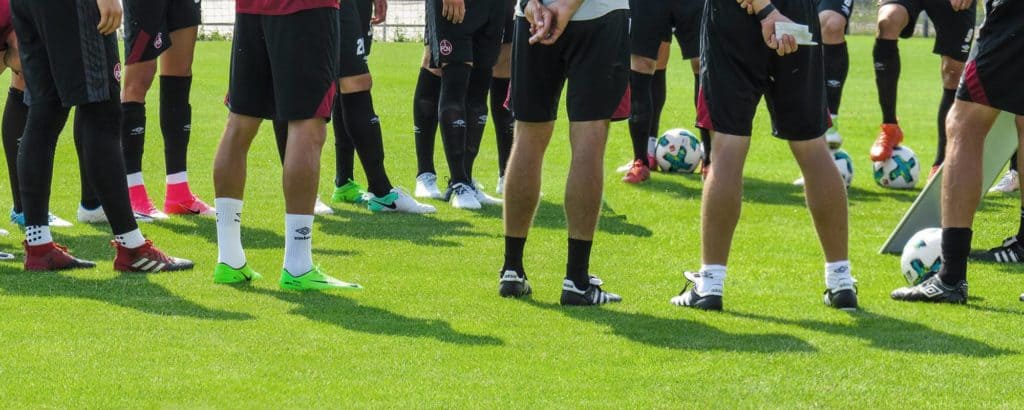The German football national team credited data analytics for its victory at the 2014 World Cup in Brazil.
The beautiful game has become increasingly professional over the last 20 years, as television money transformed football into a game where the need to win is greater than ever before. Gone are the days of flamboyant players partying late and living unhealthy lifestyles (well, mostly). Flair is important, but it’s augmented by science and the winning teams know the smallest nugget of information can make the difference between success and failure.
Professional clubs now routinely collect vast quantities of data and analyse it for insights on their own players and their opposition, which they use to make adjustments both on and off the pitch. But how do they turn this data into actionable insights?
The key component is descriptive analytics, and in order to get a head start on their competition, football clubs need two things – people with analytical skills and an analytical database, like Exasol, which offers the ability to effectively analyse the huge amounts of data gathered. Early adopters now have a “second team” of data scientists behind the scenes who analyse data taken from training sessions and during matches. They provide the insights into a player’s characteristics to help them improve performance, and into how the team should adapt to the conditions of a game.
For example, the German national team credited data analytics for its victory at the 2014 World Cup in Brazil. They had been using analytics since the 2010 tournament to better understand their tactics and discover how they could improve their game. Analysis showed that during 2010 World Cup, the German players had an average possession time of 3.4 seconds, so the team worked to reduce this to almost 1.1 seconds, as they found that by moving the ball quicker they kept the opponents (quite literally) on the back foot. By adjusting their style of play they were able to maintain an edge over their opponents during the tournament and finish as victors. In 2014, at least… but I must put my grief to one side and finish this blog!
Descriptive analytics were also at the heart of the Leicester City’s success, as the UK team overcame odds of 5000/1 to win the Premier League title in the 2015/16 season. Players were able to access interactive reports created by the team’s data scientists both before and after matches via tablets. This allowed them to see statistics, subjective comments and watch video footage, and adapt their training and play moving forwards. The use of analytics also enabled the team to assess injury concerns and achieve the lowest injury rate in the league, meaning Leicester City were able to play their strongest players week in, week out. Despite having a team that may not have been as technically gifted as others, they were still able to overcome better opposition by playing smarter as a team thanks to the insights from their analytics.
Football is big business, but companies in any industry can get ahead of the game by providing insights that help their teams respond to changes in the market or customer behaviour. This means finding a way to bridge organisational and technological siloes to gather all pertinent data and use it to its fullest potential. The only way to analyse such comprehensive data at the speed required to make quick decisions in a match – or in business situation – is by using a fast in-memory database.
By combining an easy to use visualisation tool such as Tableau, with a fast database such as Exasol to aggregate sources, employees throughout an organisation can update reports and run queries in a matter of seconds. This makes recent or real time data incredibly easy to digest so that more people within a business can have access to the data and the insights produced from it.
Putting the power of the data-driven insights in people’s hands enables teams to reach a consensus and work together to succeed. Data analytics have helped football teams win in the past, and with just 8 teams remaining in 2018 World Cup there’s little margin for error. The team that makes the most of its analytic abilities may well just win. Personally, I’m watching Belgium now, but I know enough about data not to predict the outcome.

